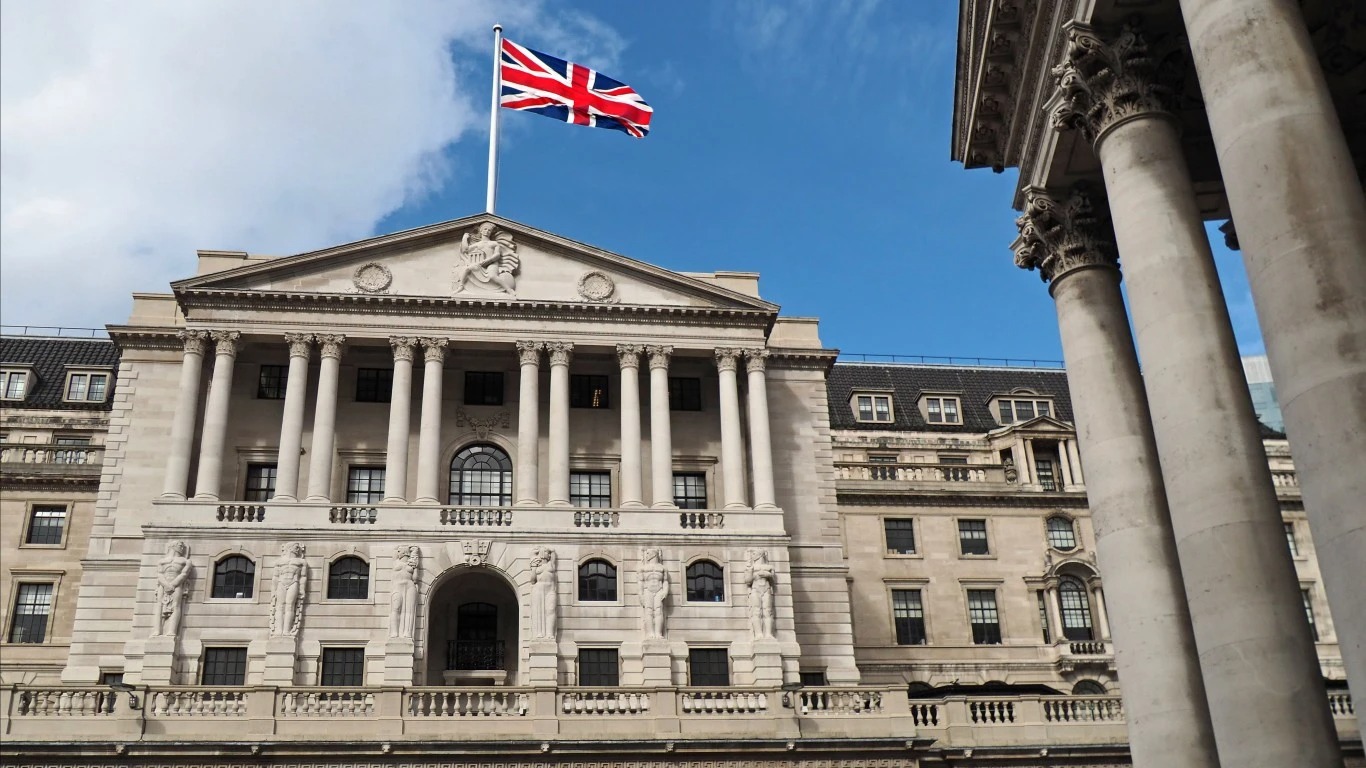
The UK’s central bank delivered a 75 bps interest rate hike Thursday, the largest since 1989. The latest increase brings the country’s key rates to 3% for the first time in 14 years as the battle against inflation drags on.
BoE Hikes Interest Rates by 75 BPS – The Largest Hike Since 1989
The Bank of England (BoE) announced a rate hike of 75 basis points (bps) Thursday, marking the biggest single increase since 1989. The move represents eight consecutive interest rate hikes by BoE and the first one since former prime minister Liz Truss introduced her mini-budget, which caused havoc in financial markets.
With the new hike, interest rates in the UK now stand at 3%, the first time they hit this level since the 2008 financial crisis. During those years before the 2008 downturn, BoE’s interest rates ranged between 3.5% and 6%.
The Monetary Policy Committee (MPC), which voted 7-2 in favor of the 75 bps hike, said its updated growth and inflation estimates suggest further headwinds for the UK economy as BoE struggles to bring inflation back to 2%. The hike comes after UK inflation hit 10.1% in September year-over-year.
UK Economy Faces a Challenging Period Amid Tough Financial Conditions
The country’s gross domestic product (GDP), which serves as a measure of the economy’s size and health, is expected to shrink by around 0.75% in the second half of 2022. Moreover, economic growth is projected to continue declining throughout the next year and the first half of 2024 as higher energy costs and “tighter financial conditions weigh on spending,” the Bank said.
While a major interest rate hike was widely expected, economists were hoping for a more dovish tone from the central bank following the recent change of leadership. Last month, Liz Truss resigned as the UK’s prime minister after serving just 44 days in office. She was replaced by Rishi Sunak, Britain’s former finance minister.
Truss stepped down after losing support in her own party after the mini-budget fiasco. In September, Truss and former UK Chancellor Kwasi Kwarteng announced record-high tax cuts to spur economic growth. However, the policy massively backfired, sending the British pound to a record bottom against the US Dollar.
Consequently, the BoE doubled down on its government bond purchases to ensure an “orderly end” to the emergency bond-buying program following the mayhem in the financial markets caused by the mini-budget. The bank said it would buy up to £10 billion of government bonds per day, up from the previously announced £5 billion.
This article originally appeared on The Tokenist
Sponsored: Tips for Investing
A financial advisor can help you understand the advantages and disadvantages of investment properties. Finding a qualified financial advisor doesn’t have to be hard. SmartAsset’s free tool matches you with up to three financial advisors who serve your area, and you can interview your advisor matches at no cost to decide which one is right for you. If you’re ready to find an advisor who can help you achieve your financial goals, get started now.
Investing in real estate can diversify your portfolio. But expanding your horizons may add additional costs. If you’re an investor looking to minimize expenses, consider checking out online brokerages. They often offer low investment fees, helping you maximize your profit.






